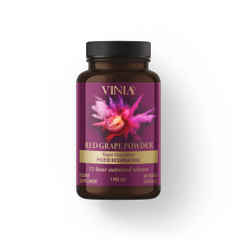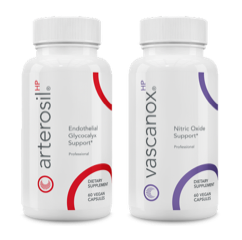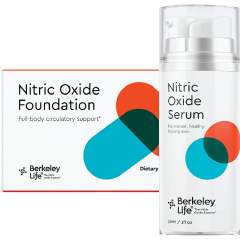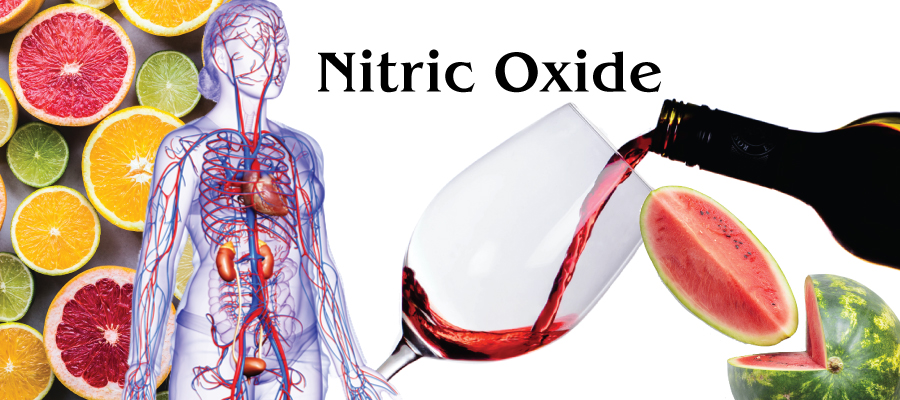Your body naturally produces a molecule called Nitric oxide (NO) that is involved in various physiological processes. It is something called a signaling molecule that plays a crucial role in cardiovascular health, immune function, and neurological processes.
Some benefits of nitric oxide are:
- Improved cardiovascular health: Nitric oxide helps regulate blood flow and blood pressure by dilating blood vessels, leading to improved circulation. It supports healthy endothelial function, which is essential for the prevention of cardiovascular diseases such as hypertension, atherosclerosis, and heart disease.
- Enhanced exercise performance: Nitric oxide is involved in the regulation of blood flow to skeletal muscles, helping to deliver oxygen and nutrients to the muscles during exercise. It also helps to relax smooth muscles in the airways, allowing for increased oxygen uptake. This can lead to improved endurance, reduced fatigue, and enhanced exercise performance.
- Vasodilation: Nitric oxide acts as a powerful vasodilator, meaning it relaxes and widens blood vessels, resulting in increased blood flow to various tissues and organs. This effect is particularly beneficial for individuals with compromised blood flow, such as those with peripheral artery disease or erectile dysfunction.
- Immune system support: Nitric oxide is an important component of the immune response, helping to fight off pathogens and regulate inflammation. It can promote the activity of immune cells and enhance their ability to kill bacteria, viruses, and parasites. Nitric oxide also aids in wound healing and tissue repair.
- Neurotransmission and cognitive function: Nitric oxide acts as a neurotransmitter in the central nervous system, playing a role in communication between brain cells. It is involved in memory formation, learning, and overall cognitive function. In addition, it helps protect against neurodegenerative diseases by combating oxidative stress and inflammation.
- Antioxidant properties: Nitric oxide possesses antioxidant properties and can scavenge harmful free radicals in the body. By reducing oxidative stress and inflammation, it contributes to overall cellular health.
Please understand that while nitric oxide has numerous benefits, excessive or unregulated production of this molecule can lead to adverse effects. Therefore, it’s always best to consult with Dr. Kaufman before considering any supplementation or specific changes related to nitric oxide.

What foods can I eat to build nitric oxide levels in my body?
Top 10 best foods to boost your nitric oxide levels:
- Beets: Beets are high in nitrates, which can significantly increase levels of nitric oxide in your body.
- Nuts and seeds: Nuts and seeds are high in arginine, an amino acid needed for the production of nitric oxide.
- Red wine: Red wine can increase levels of nitric oxide synthase, which can help enhance nitric oxide levels.
- Garlic: Garlic can enhance the bioavailability of nitric oxide and may increase levels of nitric oxide synthase, the enzyme that converts L-arginine to nitric oxide.
- Meat: Meat, poultry and seafood are high in CoQ10, a key compound that helps preserve nitric oxide in your body.
- Dark chocolate: Dark chocolate is high in cocoa flavanols, which increase levels of nitric oxide to promote heart health and prevent cell damage.
- Leafy greens: Leafy green vegetables are high in dietary nitrates, which can be converted to nitric oxide and may help maintain proper levels in your blood and tissues.
- Citrus fruits: Citrus fruits are high in vitamin C, which can enhance the bioavailability of nitric oxide and increase levels of nitric oxide synthase.
- Pomegranate: Pomegranate can help protect nitric oxide against damage, enhance the activity of nitric oxide and increase levels of nitric oxide synthesis.
- Watermelon: Watermelon is high in citrulline, which is converted to arginine and then later used in the production of nitric oxide.
A few things to remember…
Nitric oxide is a crucial compound involved in many aspects of health, including blood pressure regulation, athletic performance and brain function. Consider making a few simple additions to your diet as an easy and effective way to increase your levels of nitric oxide naturally.
As you have undoubtedly already read, eating plenty of fruits, vegetables, nuts, seeds and healthy protein foods can optimize nitric oxide levels while also promoting better overall health in the process.
Dr. Kaufman includes testing for nitric oxide with her patients, if you would like to learn more about your nitric oxide requirements CONTACT US and we will do our best to answer your questions.

Products recommended by Dr. Kaufman:

Vinia is available for in-office purchase and pickup or HERE

Vaxcanox is available on FULLSCRIPT and on the website.

Berkeley Life Support HERE or FULLSCRIPT



